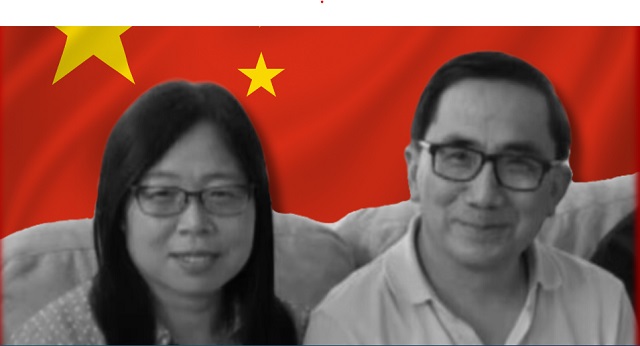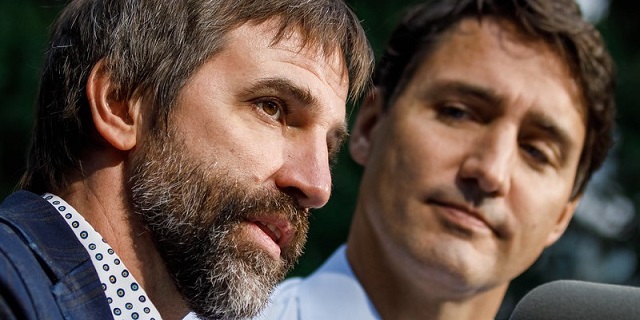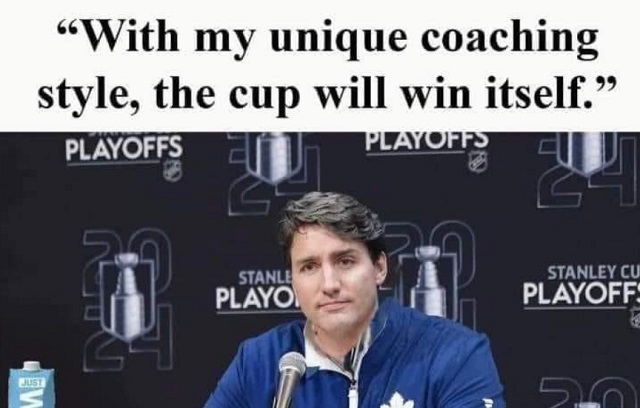COVID-19
Freedom Convoy leaders’ lawyers argue defendants encouraged peaceful protesting
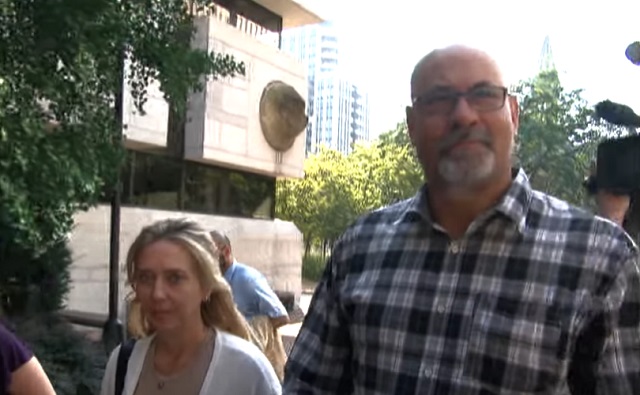
From LifeSiteNews
Freedom Convoy leader Chris Barber’s legal counsel argued that text messages he sent to both police and fellow protesters during the convoy prove he was not encouraging people to commit crimes
On day 30 of the trial against Freedom Convoy leaders Tamara Lich and Chris Barber, the defense detailed to the court how text message exchanges from one of the leaders showed he was trying to ensure protestors were as respectful as possible and wanted to work with police.
According to a day 30 update from the Democracy Fund (TDF), which is crowdfunding Lich’s legal costs, defense counsel for Barber, Diane Magas, said that a text conversation between Barber and an “individual known as ‘Big Baller,’” show that “Barber expressed his efforts to cease honking and persuade other truck drivers to follow suit,” in attempt to abide by law enforcement’s request.
Magas also highlighted how a text message exchange between Barber and an Ottawa Police Services (OPS) officer, asking for a “slow roll” on Parliament Hill, “received police support.”
“These instances, according to Magas, illustrated Barber’s intent for a lawful protest,” noted TDF.
Magas questioned the Crown’s allegation that the leaders had planned a conspiracy, noting a February 12, 2022, agreement letter between the convoy protesters and the mayor’s office.
“She questioned whether the Crown implied the mayor’s office was part of the alleged conspiracy,” noted TDF.
“Magas highlighted a TikTok video on February 16, 2022, with Barber and Canadian lawyer Keith Wilson, where Wilson emphasized that the declaration of the Emergencies Act still permitted peaceful protests. Magas concluded her submissions by asserting that, considering the totality of evidence, the court couldn’t find an agreement for the alleged conspiracies without speculation.”
In response, the Crown’s counsel said that a “directed verdict would be appropriate if there were no evidence of criminality,” but again argued for their Carter application to proceed.
On Monday, which was Day 28 of the trial, the defense argued that a Crown request to make it so that criminal charges against one leader should apply to the other leader as well, and vice versa, should not be allowed to take place, as there is no evidence the pair worked in a conspiratorial manner.
The defense teams for Lich and Barber told the court they intended to bring forth two applications, the first being a call to dismiss the Crown’s “Carter application.”
The Crown’s so-called “Carter Application” asks that the judge consider “Barber’s statements and actions to establish the guilt of Lich, and vice versa,” TDF stated.
TDF noted that this type of application is very “complicated” and requires that the Crown prove “beyond a reasonable doubt” that there was a “conspiracy or plan in place and that Lich was a party to it based on direct evidence.”
On Wednesday in court, the Crown claimed that they did not think of the protests as violent, but “disputed the defense’s characterization of the protests as peaceful.”
The Crown claimed that non-violent protests could still be “disruptive and result in criminal charges,” as noted by TDF, adding that the court should consider limitations to Charter rights when looking at charges made against the leaders.
In court, Judge Heather Perkins-McVey reminded the Crown that not everyone involved in the Freedom Convoy was working together. The Crown agreed this was the case.
On Day 29, Lich’s legal counsel argued that her use of the rallying cry “hold the line” during the 2022 protests did not imply she was calling for people to engage in illegal activity.
Lich and Barber are facing multiple charges from the 2022 protests, including mischief, counseling mischief, counseling intimidation and obstructing police for taking part in and organizing the anti-mandate Freedom Convoy. As reported by LifeSiteNews at the time, despite the non-violent nature of the protest and the charges, Lich was jailed for weeks before she was granted bail.
The defense’s application came after the Crown abruptly decided to end its case last Monday, telling the court it would not call forth any new witnesses.
In early 2022, the Freedom Convoy saw thousands of Canadians from coast to coast come to Ottawa to demand an end to COVID mandates in all forms. Despite the peaceful nature of the protest, Prime Minister Justin Trudeau’s government enacted the Emergencies Act on February 14.
During the clear-out of protesters after the EA was put in place, one protester, an elderly lady, was trampled by a police horse, and one conservative female reporter was beaten by police and shot with a tear gas canister.
Lich and Barber’s trial has thus far taken more time than originally planned. LifeSiteNews has been covering the trial extensively.
COVID-19
House COVID Committee Confirms What We Have Long Suspected — The Feds Really Hate Transparency
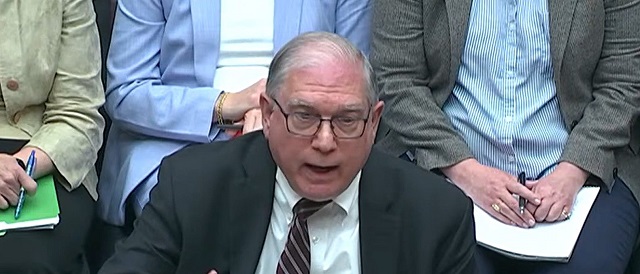
 From the Daily Caller News Foundation
From the Daily Caller News Foundation
Last week details emerged from the House Select Subcommittee on the Coronavirus Pandemic, confirming what government transparency advocates long suspected: Federal bureaucrats are purposefully stonewalling the American people’s right to know about their government.
Republican Kentucky Rep. James Comer, who chairs the full House Oversight and Accountability Committee, read from an email that Dr. David Morens, a top aide to Dr. Anthony Fauci, sent claiming that a staffer inside the National Institutes of Health (NIH) had shown him how to erase records requested by the public.
He was corresponding with Peter Daszak, president of EcoHealth Alliance, the organization that used tax dollars to fund controversial gain-of-function research in Wuhan, where the COVID outbreak began. The Department of Health and Human Services has since suspended funding of EcoHealth Alliance.
Morens wrote: “I learned from our FOIA (Freedom of Information Act) lady here how to make emails disappear after I am FOIA’d, but before the search starts. So, I think we are all safe. Plus, I deleted most of those earlier emails after sending them to Gmail.”
The implications for government transparency are enormous. How often do NIH staffers conceal what they do with our tax dollars? Why did a FOIA officer feel empowered to assist subjects of FOIA requests? How else do FOIA offers interfere with these requests? Has this behavior spread to the Centers for Disease Control and other agencies?
Our auditors at OpenTheBooks.com can speak to the problem. We have spent years — and gone to court — to force NIH to reveal the royalties paid to government scientists through medical innovation licensing.
When Americans are considering a drug or therapeutic recommended by public health officials, they deserve to understand all the financial stakes at play. Were any decision makers receiving payments? Were they continuing more lucrative research at the expense of other public health solutions?
For many, the question looming largest has been whether the relentless COVID vaccine push was driven by a potential windfall for NIH and certain scientists there.
When we first filed a FOIA, the agency ignored us and then refused to release the information.
After suing, NIH was required to release the information and began doing so incrementally due to the high volume of data. Tallied from 2009 through 2020, it amounted to an enormous sum–over $325 million paid by private companies to NIH and its scientists over 56,000 transactions.
Previously, we’d also discovered that Dr. Fauci, the face of the nation’s COVID response, was the highest compensated bureaucrat in the country. He out-earned President Biden. He out-earned his own boss, then-Acting NIH Director Lawrence Tabak.
Along with Fauci, who scoffed at concerns about royalty payments, Tabak faced questions from Congress.
In a March 2023 budget hearing, Rep. John Moolenaar told Tabak an obvious truth: every single, secret royalty payment represents a potential conflict of interest.
“To me, one of the biggest concerns people had during this last couple years is: Were they getting truthful information from their government? Could they trust what people were saying about the medicines? To me, that creates a very disturbing appearance.”
“The idea that people were getting a financial benefit from certain research that was done and grants that were awarded, that to me is the height of the appearance of a conflict of interest,” Moolenaar concluded.
The lawmaker urged NIH to make the money trail more transparent.
It was Tabak in the hot seat again last week, as Comer recited Morens’ outrageous email message.
Was the behavior he described consistent with NIH policy, Comer asked? “It is not,” Tabak responded flatly.
Did the FOIA team at NIH help its colleagues avoid transparency? “I certainly hope not,” Tabak offered.
Hope doesn’t suffice in this situation. It demands that lawmakers strengthen transparency law, update it for the 21st century and create some consequences for bad actors.
There are a few primary ways bureaucrats and decisionmakers violate the spirit of the law.
First, they overuse a series of exemptions designed to protect national security secrets or privacy laws. Too much is omitted through these exceptions; the American people deserve the full truth.
When documents are produced, they’re too often rendered useless through excessive redactions. We’re still fighting in real time to get more pieces of the royalty puzzle revealed.
Next, unreasonable delays are blamed on staffing levels, while many FOIA-related roles sit open. Agencies must prioritize filling those seats and Congress should appropriate more of them as needed.
Finally, we have the behavior Morens describes. A post facto effort to simply abscond with the information. It’s not just a policy violation but an affront to the spirit of the Freedom of Information Act. What consequences do these staffers ever truly face?
Until we get serious about protecting transparency, “FOIA lady” will be a duly anonymous symbol of what many have suspected: government employees hustling to cover their tracks.
Adam Andrzejewski is founder & CEO of OpenTheBooks.com, the nation’s largest private database of public spending.
COVID-19
Fauci’s Top Advisor May Have Illegally Evaded Records Requests, Experts Say
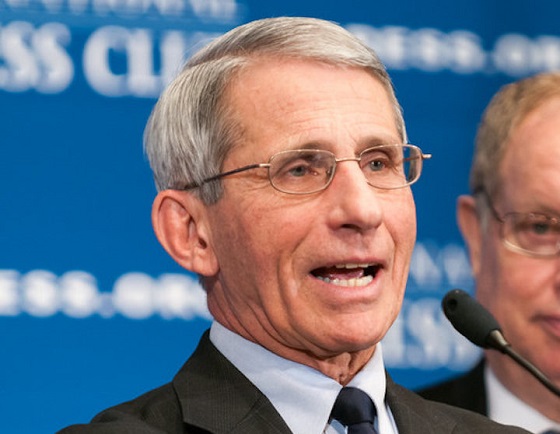
 From the Daily Caller News Foundation
From the Daily Caller News Foundation
“These revelations are startling,” Judicial Watch senior attorney Michael Bekesha told the DCNF. ” It appears as though Dr. Morens and maybe others at NIH sought to circumvent, if not violate, the law by using personal email accounts and deleting emails.”
A top advisor for former National Institute of Allergy and Infectious Diseases (NIAID) Director Anthony Fauci may have illegally taken actions to avoid records requests, experts told the Daily Caller News Foundation.
David Morens, a former senior adviser to Fauci, both deleted emails to evade Freedom of Information Act (FOIA) requests and told people multiple times to contact him at his personal email address to get around such requests, according to emails released by the House Oversight Committee on Wednesday. Morens, in his emails, also suggested that Fauci used his private email address to conduct government business.
“This is very illegal,” Matthew Hardin, a lawyer specializing in issues related to FOIA, told the DCNF.
“The Federal Records Act has strict requirements for preserving agency records in the agency’s custody for various reasons, including for purposes of facilitating the agency’s compliance with the Freedom of Information Act,” he continued. “This means that anybody conducting agency business through a ‘secret’ back channel or through Gmail is still creating a federal record, even if they are wrongfully concealing that record on a personal account instead of the government’s custody.”
In addition to using his private email address to communicate with others with the express purpose of getting around FOIA requests, Morens instructed others to reach Fauci at a private address for similar reasons.
In an April 2021 email to Peter Daszak, the president of EcoHealth Alliance, Morens said that there is “no worry about FOIAs” as he can “either send stuff to Tony [Fauci] on his private email, or hand it to him at work or at his house.”
“He is too smart to let his colleagues send him stuff that could cause trouble,” Morens continued.
“These revelations are startling,” Judicial Watch senior attorney Michael Bekesha told the DCNF. ” It appears as though Dr. Morens and maybe others at NIH sought to circumvent, if not violate, the law by using personal email accounts and deleting emails.”
Bekesha said Morens’ conduct could run afoul of the Federal Records Act, the Freedom of Information Act and the Privacy Act.
Daszak’s EcoHealth has received scrutiny for working with the Wuhan Institute of Virology, which some have posited was where the COVID-19 pandemic originated. The Federal Bureau of Investigation and the Department of Energy now both believe that COVID-19 likely emerged from a Chinese lab. EcoHealth was cut off from federal funding on May 15 in part due to issues with its monitoring of work done at the Wuhan Institute of Virology.
🔥 🔥 🔥
Chairman Comer GRILLS Dr. Fauci’s Senior Advisor, Dr. David Morens, who was caught deliberately obstructing @COVIDSelect’s investigation into the origins of COVID-19 to protect Dr. Fauci. pic.twitter.com/mWwAq3iDvd
— Oversight Committee (@GOPoversight) May 22, 2024
Beyond using personal emails to evade possible FOIA requests, Morens also said that he worked with his agency’s FOIA office to delete records of his communications.
“[I] learned from our foia [sic] lady here how to make emails disappear after I am foia’d [sic] but before the search starts, so [I] think we are all safe,” Morens wrote in a February 2021 email. “Plus [I] deleted most of those earlier after sending them to gmail [sic],” he continued.
Morens sent multiple emails between June 2020 and October 2021 suggesting that he’d deleted his government communications. “We are all smart enough to know to never have smoking guns, and if we did we wouldn’t put them in emails and if we found them we’d delete them,” he said in one email.
“The right of citizen access and the transparency of public records is constitutional and enshrined in Article I, Section 9, Clause 7 of the U.S. Constitution—within the powerful Appropriations clause,” Open The Books CEO Adam Andrzejewski told the DCNF. “Such an important and significant admission of the destruction of public records begs a non-partisan, criminal investigation,” he continued.
“The question now is how often are the feds working to hide or destroy information that belongs in the public record? Is it limited to the public health complex, or is it happening all over the government?”
If Morens deleted his emails to evade FOIA, Hardin says that could constitute “destroy[ing] government property.”
Michael Chamberlin, director of Protect the Public’s Trust, told the DCNF that “federal employees are obligated to preserve federal records” and that “destroying records for the express purpose of evading FOIA is a blatant and egregious violation of this obligation and should be treated as such.”
Morens also claimed to have a “‘secret’ back channel” to Fauci, a statement he walked back during congressional testimony on Wednesday by saying that he was only joking. Morens said during his testimony he did not recall sending information related to COVID-19 to Fauci’s personal email address, but that it’s possible he did so at some point.
The Department of Health and Human Services (HHS), which the NIAID operates within, declined to comment on the specifics of Morens’ emails.
“HHS doesn’t comment on personnel matters,” a spokesperson for the department said. “HHS is committed to the letter and spirit of the Freedom of Information Act and adherence to Federal records management requirements. It is HHS policy that all personnel conducting business for, and on behalf of, HHS refrain from using personal email accounts to conduct HHS business,” they continued.
-
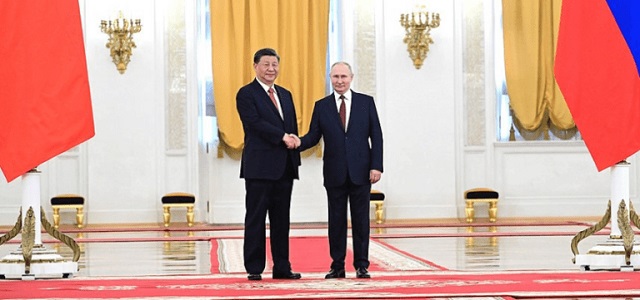
 Agriculture2 days ago
Agriculture2 days agoThe China – Russia “Grain Entente” – what is at stake for Canada and its allies?
-
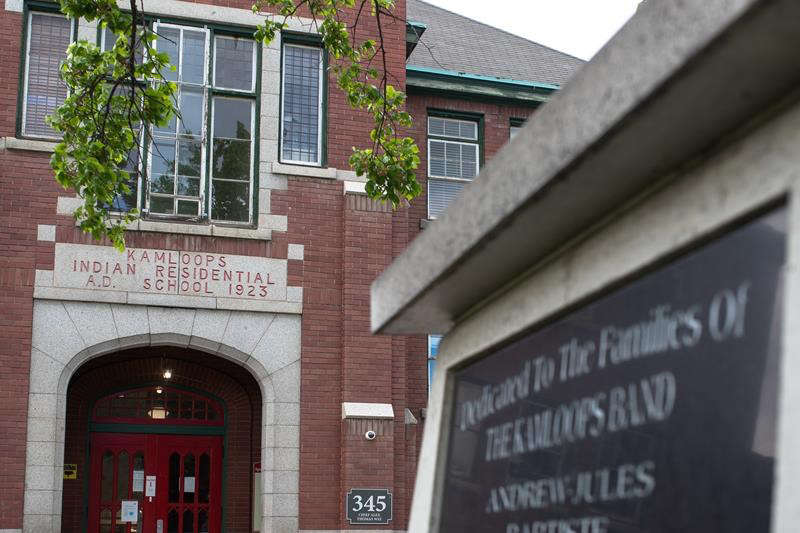
 Indigenous17 hours ago
Indigenous17 hours agoNo accounts on $7.9 million dollar ‘Truth’ Fund
-
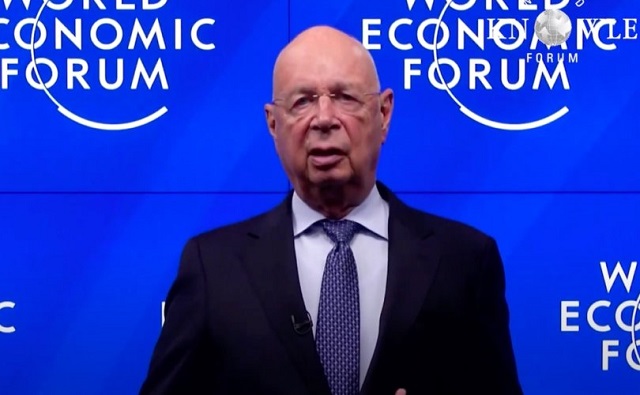
 Great Reset2 days ago
Great Reset2 days agoDr. Robert Malone reacts to Klaus Schwab’s resignation: ‘Resistance is not futile’
-
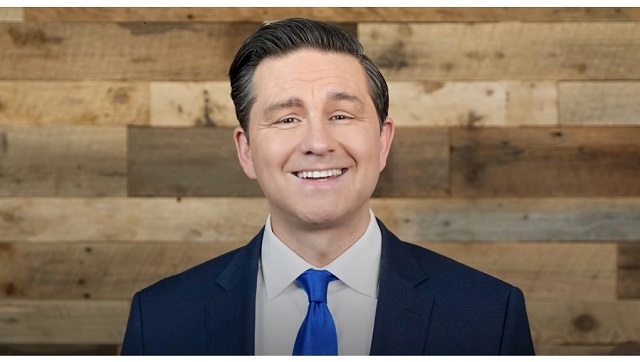
 Bruce Dowbiggin2 days ago
Bruce Dowbiggin2 days agoThe Most Dangerous Man In Canada: Emmanuel Goldstein Reborn
-

 COVID-192 days ago
COVID-192 days agoFauci’s Top Advisor May Have Illegally Evaded Records Requests, Experts Say
-

 COVID-191 day ago
COVID-191 day agoHouse COVID Committee Confirms What We Have Long Suspected — The Feds Really Hate Transparency
-
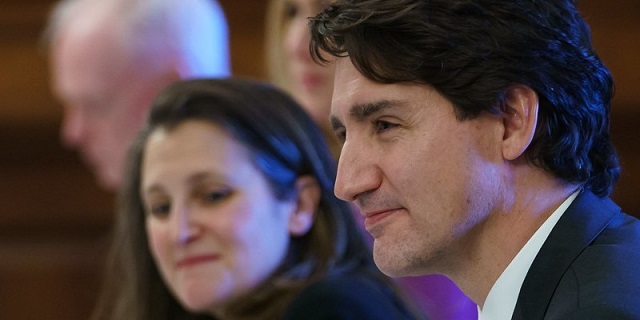
 Fraser Institute14 hours ago
Fraser Institute14 hours agoFederal government should have taken own advice about debt accumulation
-

 Health1 day ago
Health1 day agoUniversity of Toronto Study Finds Teen Marijuana Use Tied To Dramatic Increased Risk Of Psychosis

